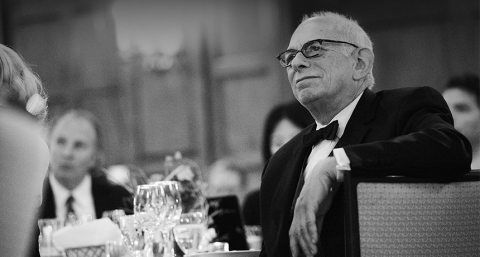Remembering Richard Ortner

“As artists, we work constantly to find true empathy—to understand others, to feel with them, to translate and filter their experience through our own, and in the end to share that experience, transformed, as a way of enlarging the human journey."—Richard Ortner
A Message from Executive Director Cathy Young
October 10, 2019
It is with a heavy heart that I share news of former Boston Conservatory President Richard Ortner's passing on October 10, after a long and courageous battle with cancer. The Conservatory community is deeply saddened by this loss.
During his tenure as president from 1998 to 2017, Richard devoted his life to the Conservatory, and transformed it into the world-renowned institution it is today. The energy and vision he brought to the school attracted talented faculty, introduced groundbreaking student resources and programs, and led the Conservatory through two historic facility expansions to provide students with state-of-the-art learning spaces—the renovation of 31 Hemenway Street and the construction of 132 Ipswich Street (recently named the Richard Ortner Studio Building). Indefatigable and always forward-thinking, Richard’s bold vision for the Conservatory did not stop there. Imagining a world of endless potential and possibility, he led the Conservatory through a historic merger with Berklee—the first in the world between two performing arts colleges.
But perhaps his greatest legacy is the close-knit, supportive, and socially engaged community he fostered. Deeply passionate about the role of performers as artist-citizens, Richard believed that artists bear a responsibility to use their talent to enrich both their local community and the world at large. These ideals are ingrained in the Conservatory’s culture and identity, and are at the core of our work every day: to educate artists who will impact the world for the better with agency, compassion, and purpose.
Everything Richard did was to support students and lift them to reach their highest potential. He attended nearly every student performance, from mainstage productions to recitals. He knew students on a personal level, and made each one aware of their special purpose in the world as artists.
I am deeply honored to have known Richard as both a colleague and a friend, and am grateful for his mentorship. His enormous capacity to inspire, through his powerfully articulate words and monumental deeds, will be carried on by all who knew him and will impact future generations of Conservatory students. We are all better because of him.
Sincerely,
Cathy Young
Senior Vice President and Executive Director
Boston Conservatory at Berklee
